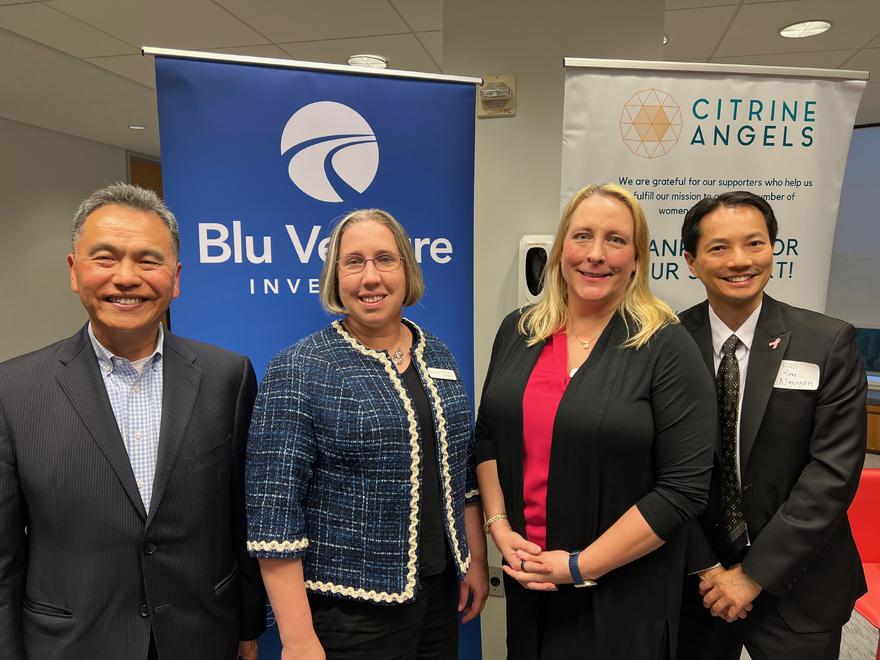Your Check Has Been Cashed: Now What? Life After Investment

On April 19th, Citrine Angels, in partnership with Blu Venture Investors, held a happy hour and panel discussion at Refraction DC. Members gathered to learn more about the intricate processes that occur after an angel investment is made, including how to optimize taxes and how to stay engaged in follow-on rounds. The event was moderated by Citrine Board Member Dr. Kimberly Lumpkins, Chief of Pediatric Surgery at the University of Maryland School of Medicine. Featured panelists included Kim Nguyen, Managing Partner of Brilliant Keypoint Investments, LLC, and Partner of the Innovations Investment Committee at Blu Venture Investors; Katherine Hill Ritchie, Citrine Angels Board Member and Senior Director of Venture Funds at TEDCO; and Steven Chen, Partner of the Cyber Investment Committee at Blu Venture Investors.
The good news: you don’t always need to hit a home run with a unicorn company to conclude an investment in a profitable manner. “Base hits,” where your profits are more building blocks than lottery winners, can give you a strong, healthy, and thriving portfolio. The key, according to our panelists, is to diversify the scope of your investments, to invest thoughtfully and objectively, to build your portfolio out over the course of years, and to consider the tax implications of your investments in order to maximize your profits. Patience is necessary; it takes time for startups to grow, and it's not a 3-5 year process. A reasonable goal may be to invest in 30 companies over the course of 10 years. It can take 7 to 10 years to break even, but once you do, the rest is pure profit to be reinvested, spent, or saved.
It’s also essential to stay plugged into the news around the company in which you invested. A Google Alert is a smart, low-effort way to monitor the news (and they may even inform you faster than your SPV, which could delay information). Being part of a group investment, like those initiated by Citrine Angels, can also help you get information quickly. A group might also keep you from becoming overly attached to a company and founder; this type of attachment can blind an investor to the hard realities facing a startup.
There are several ways of managing your investment after you’ve participated in the first round of funding and before an exit occurs. Bridge rounds, also known as follow-on or extension rounds, are a popular way for startups to secure additional capital before they can secure their next round of funding. A bridge round can provide a great opportunity for upping (or beginning) your investment in a promising startup at an early stage.
If the opportunity arises, selling your shares to another investor – a process known as a secondary – is a way to sell your position early to another investor (or investors) instead of waiting for the company to exit. Secondaries are completely dependent on market timing, the performance of the company, and whether there is any interest in buying your shares.
Investing in a startup can have tax consequences, but there are ways to minimize the hit your pocket will take. One option is to invest through a trust or an IRA, either of which can provide tax benefits. Additionally, for those who have opened their own business, a solo 401k (such as the one Katherine set up through Mainstar Trust) can be a great option. Another way to reduce tax liability is to set up an LLC, which can provide liability protection and estate planning benefits. It's important to remember that the tax base is derived from the value you put in, so careful planning is necessary to maximize returns.
One final note: you should always seek advice from a qualified legal or tax professional.
